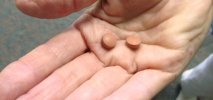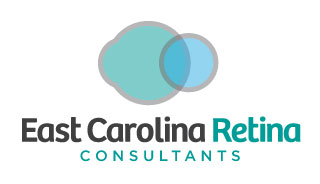New Treatment for Macular holes
Recent approval of Jetrea (Ocriplasmin) to treat symptomatic VMA (Vitreo Macular Adhesion) has opened up a new era in non surgical management of macular holes. Previously only a hospital based surgery was able to reverse the process of macular hole development but now a new drug can be injected into the eye painlessly in the office and within a few weeks the process reverses back to more normal vision levels.... more
FDA Approves ASRS Leader's ArgusŪ II Artificial Retina
On February 14, the FDA approved the Argus II artificial retina developed by ASRS Executive Committee and Board Member Mark S. Humayun, MD, PhD.
This breakthrough technology is the first ever to offer limited vision to patients with late-stage retinitis pigmentosa (RP).
Second Sight Medical Products (Sylmar, CA) manufactures the Argus II implant, which has 60 electrodes and a tiny camera mounted on eyeglasses to capture images.
The FDA approved Argus II for adults age 25 years or older with severe to profound RP. About 10,000 to 15,000 of the 100,000 Americans with RP will qualify for Argus II. Up to 4,000 patients a year can be treated with the device.
Macular degeneration and Aspirin?

Aspirin and Macular degeneration... is there an increase in the wet form of macular degeneration in those patients taking aspirin? The wet form develops quicker than the dry form. It may only be related to the fact that you are more likely to take aspirin if you have medical problems like stroke or heart attacks in the past and these conditions are more commonly associated with wet age related macular degeneration. ... more

Hypertensive Retinopathy
Overview:
Hypertensive retinopathy occurs when high blood pressure causes small vessels in the body to become lined with cholesterol and fat. When the vessels of the retina become clogged, the retina itself cannot receive the nutrients it needs to stay healthy and the vessels continue to swell. If hypertensive retinopathy is not controlled before bleeding occurs, vision can be damaged permanently. Small infarcts or mini strokes of the retina can occur.
Symptoms & Types:
Small clogs that occur in the retinal vessels are known as cotton wool spots. These spots represent a small localized “minature stroke" of the retinal vessels due to high blood pressure. If the blood pressure is left untreated, new spots can form making more damage.
Those affected may experience headaches or blurred or loss of vision. If symptoms of stroke start to appear, go to the emergency room immediately.
Treatment:
The best treatment to control hypertensive retinopathy is to keep blood pressure in check through eliminating lifestyles that contribute to hypertension and seeing your medical doctor for evaulation and treatment. Some damage to the retina will heal as blood pressure drops while taking the blood pressure medications. If complications have occurred, surgery or laser may be required to help heal a hemorrhage or other resulting condition. If you stop taking the blood pressure medications, the blood pressure will go back up and do more damage to not just the eyes but also multiple important organs though out the body. Hypertension is known as the "silent killer" as you always feel better when your blood pressure is higher but then when it gets even higher, you then have the headaches, strokes, heart attacks and death. If you have problems or side effects with the medications, talk to your primary medical doctor and see if there are other medications that are more tolerable.
Prevention:
Prevention of initial or further damage to the retina due to hypertensive retinopathy requires a healthy diet and elimination of risk behaviors that can move blood pressure above the level of 130/85. Avoid soda or carbonated beverages (diet or sugared) and do not smoke. Maintain a healthy weight by limiting high cholesterol/high fat foods and try to get around 30 minutes of exercise per day depending on your physician's recommendations. The eye condition is diagnosed and monitored by physicians at East Carolina Retina Consultants but the task of prescribing and monitoring the blood pressure that caused the eye problem restsw with your primary medical physician. If possible, seek advice from a registered dietician for eating guidance.






